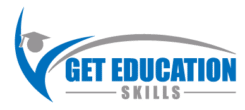A Comprehensive Guide to Key Aspects of Education
Wiki Article

Education is an expansive journey that shapes personal and professional growth. From acquiring essential skills to preparing for exams and planning careers, understanding various facets of education can significantly enhance your experience and success. This guide explores fundamental aspects of education, providing valuable insights for students, educators, and career seekers.
1. The Significance of Education
Education is a critical process that spans from early childhood through adulthood, influencing both personal development and societal progress. It provides the foundation for acquiring knowledge, developing skills, and fostering values that contribute to a well-rounded individual and a more informed society.
2. Essential Skills for Educational Success
To excel academically and professionally, mastering certain skills is crucial:
Critical Thinking: The ability to analyze and evaluate information objectively and make reasoned decisions.
Effective Communication: Clear and persuasive expression of ideas through both written and verbal means.
Problem-Solving: Identifying problems and developing innovative solutions.
Time Management: Organizing and prioritizing tasks to meet deadlines and achieve goals efficiently.
Digital Literacy: Proficiency in using technology to enhance learning and productivity.
Developing these skills not only supports academic achievement but also prepares individuals for a range of career and life challenges.
3. Exam Preparation and Strategies
Examinations are designed to assess a student's understanding and knowledge. Effective exam preparation involves:
Standardized Tests: Assess performance against a set of standards.
Quizzes and Midterms: Regular assessments that monitor progress and comprehension.
Final Exams: Comprehensive evaluations at the end of a course or academic term.
Preparation strategies include creating a study schedule, practicing with sample questions, and employing effective test-taking techniques. Consistent study habits and stress management are key to performing well.
4. Career Planning and Development
Career planning is essential for achieving long-term professional goals. Key components include:
Self-Assessment: Identifying personal strengths, interests, and career aspirations.
Career Exploration: Researching various career paths and understanding their requirements and opportunities.
Skill Acquisition: Gaining relevant qualifications and experience for your chosen field.
Networking: Building professional connections and seeking mentorship to explore job opportunities.
Effective career planning is an ongoing process that adapts to changing interests and market conditions.
5. Utilizing Online Resources for Career Advancement
The digital age has revolutionized career exploration and development. Useful online resources include:
Job Portals: Websites where job openings are listed, and applications can be submitted.
Professional Networking Sites: Platforms like LinkedIn for connecting with industry professionals and discovering geteducationskills job opportunities.
Online Learning Platforms: Resources for acquiring new skills and certifications that enhance career prospects.
Leveraging these tools can significantly enhance job search efforts and career development.
6. College Preparation
College represents a pivotal stage in higher education, offering specialized knowledge and personal growth opportunities. Key aspects of preparation include:
Researching Colleges: Evaluating institutions based on academic programs, campus culture, and location.
Application Process: Preparing and submitting applications, including personal statements and recommendation letters.
Financial Planning: Understanding tuition costs and exploring financial aid options and scholarships.
Thorough preparation can greatly influence your academic and professional future.
7. Supporting Educators
Teachers play a crucial role in the educational system. Effective teaching involves:
Lesson Planning: Designing engaging and educational lesson plans.
Classroom Management: Creating a positive and productive learning environment.
Student Assessment: Evaluating student progress and providing constructive feedback.
Supporting educators with professional development and resources is essential for fostering effective learning experiences.
8. The Role of General Education
General education provides a broad knowledge base and essential skills that include:
Literacy and Numeracy: Fundamental skills in reading, writing, and mathematics.
Social Studies: Understanding of history, geography, and civic responsibilities.
Science and Technology: Knowledge of scientific principles and technological advancements.
A strong foundation in general education prepares individuals for diverse life and career opportunities.
Conclusion
Education encompasses a broad range of elements that contribute to personal and professional success. By focusing on essential skills, effective exam strategies, career planning, and utilizing online resources, individuals can enhance their educational experiences and achieve their goals. For more detailed information and resources on these topics, visit Get Education Skills.